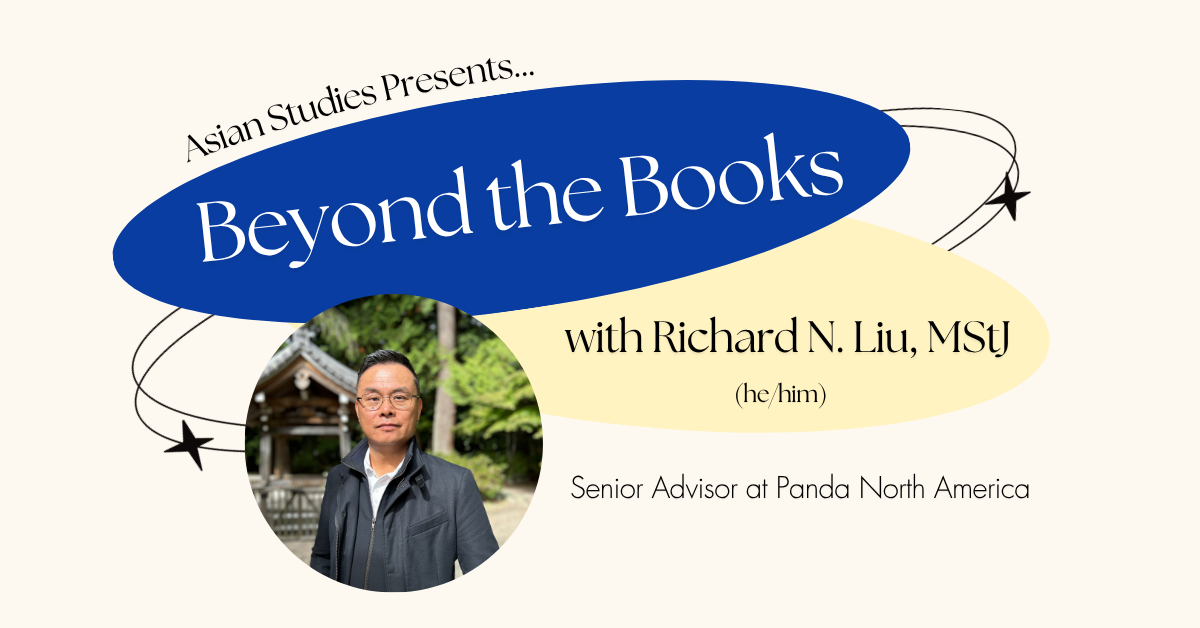Interested in what you can do with a degree in Asian Studies? In our Alumni Spotlight Interview Series, we ask our alumni about their career paths, how they became interested in Asian Studies and for any advice they would give to current students. This interview features Moto Mukai, UBC Asian Studies BA’2003.
![Moto-Mukai[1]](https://asia.ubc.ca/wp-content/uploads/sites/18/2014/03/Moto-Mukai1.jpg)
![Moto-Mukai[1]](https://asia.ubc.ca/wp-content/uploads/sites/18/2014/03/Moto-Mukai1.jpg)
How has an Asian Studies degree helped you in your endeavors?
I’ve always wanted to pursue a career in the private sector that caters to the Japanese market not only because of my heritage but my fascination with Japan’s complex history and culture. Born in Canada but influenced by Japanese culture throughout my youth, it was the only degree I was interested in at UBC and as I look back I feel that everything I learned from my Asian Studies degree has directly helped me do what I currently do for a living.
Have you lived in Japan and how has your time abroad helped you in your career endeavors?
I lived in Japan for a total of 2 years, one year while at UBC studying at Tokyo University of Foreign Studies as an exchange student and one year working in Japan for the World Cup of Soccer that Japan and Korea jointly hosted back in 2002. My time in Japan as an exchange student expanded my horizons in every possible way; apart from the valuable life experience, it really gave me a clearer picture of what type of career I wanted to pursue in the future. When I was back working in Japan, I learned very quickly that life in Japan was nothing like the fun times I remembered it when I was in there as an exchange student. Having said that, I learned more about the Japanese business world and business protocol in that one year than all my years working for Japanese companies back home in Vancouver.
Could you go into some detail about your career path until now?
My work experience throughout my student days and early part of my career has been in the field of tour operation, translation, and international education specific to the Japanese market. I currently run MYK Enterprises, an inbound and outbound tour company that specializes in organizing various student programs such as school exchanges and customized study tours for both the Japanese and Canadian markets.
As an employer, what do you look for when you are looking through resumes?
My company is a small scale operation with very specific staffing needs but I think most employers in similar fields will share the same view that a good balance of work experience both at home and abroad is essential. While any experience abroad is likely an asset as it tells potential employers that you are a globally minded person, if your long term career objective is to eventually be back home after any stints abroad it is important to always keep in mind that each additional year you decide to spend abroad comes at the cost of building your resume back home. I have seen so many extremely qualified people who seem to be struggling to land a job that matches their background for this very reason as companies here place much more emphasis on Canadian work experience.
Do you have any advice that you would like to impart to students/recent graduates?
I just want to follow up on the previous question, I am definitely not discouraging anyone from going abroad as I truly feel it is the best thing you can do to directly impact your career objectives. Combining real life international work experience (the how) with what I learned at UBC Asian Studies (the why) to me was huge in terms of my work as a cultural liaison as I feel I am effective in identifying and communicating differences in business practices to help make projects go smoothly. And last but not least, I would like to stress the importance of networking, especially when it comes to the Japanese business world. Japanese people rarely small talk about the weather with strangers (i.e. in the elevator) the way Canadians do as it would be considered borderline creepy but they are so quick to become friendly to anyone they are “introduced” to.


